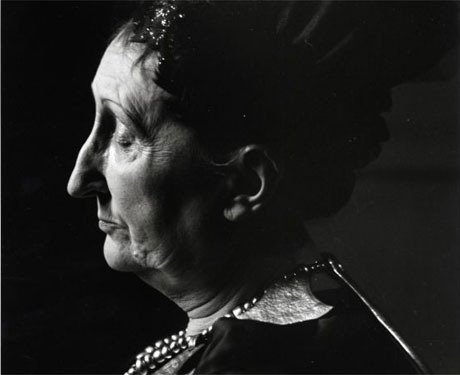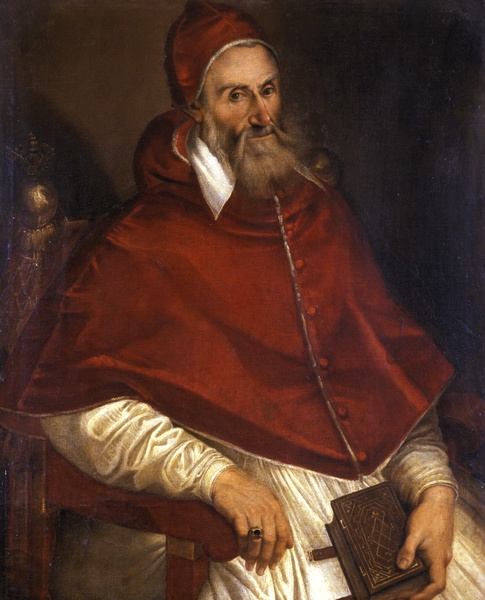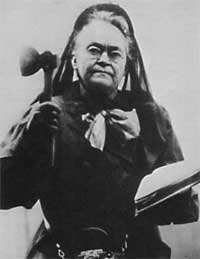httpv://www.youtube.com/watch?v=l8C4HL2LyWU&feature=related
An excerpt from Not I, featuring the lips, teeth and tongue of Beckett collaborator Billie Whitelaw: “Words were coming. Imagine! Words were coming.”
On this date in 1989 Samuel Beckett died (born 1906).
Frye in “The Nightmare Life in Death,” his review of Beckett’s trilogy, Molloy, Malone Dies and The Unnamable, published in Hudson Review in 1960:
Many curiously significant remarks are made about silence in the trilogy. Molloy, for example, says: “about me all goes really silent, from time to time, whereas for the righteous the tumult of the world never stops.” The Unnamable says: “This voice that speaks, knowing that it lies, indifferent to what it says, too old perhaps and too abased ever to succeed in saying the words that would be its last, knowing itself useless and its uselessness in vain, not listening to itself but to the silence that it breaks.” Only when one is sufficiently detached from this compulsory babble to realize that one is uttering it can one achieve any genuine serenity, or the silence which is its habitat. “To restore silence is the role of objects,” says Molloy, but this is not Beckett’s final paradox. His final paradox is the conception of the imaginative process which underlies and informs his remarkable achievement. In a world given over to obsessive utterance, a world of television and radio and shouting dictators and tape recorders and beeping space ships, to restore silence is the role of serious writing. (CW 29, 167)
After the jump, a recent version of Play, featuring the heads of Juliet Stevenson, Alan Rickman and Kristin Scott Thomas.




